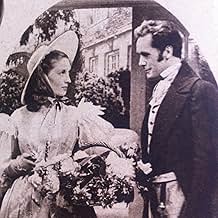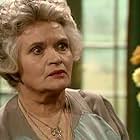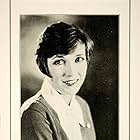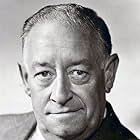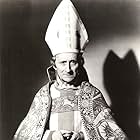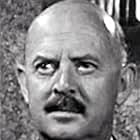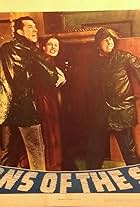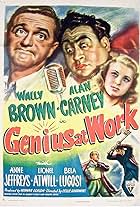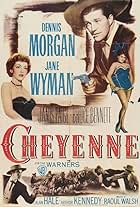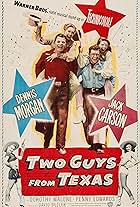Atlantic Ferry, made by Warner Brothers in Great Britain celebrates the conglomerate that formed the Cunard line which inaugurated steam powered travel across the ocean. Of course this film was made at a time when Great Britain was trying ever so hard to get the United States involved in the second World War on their side and Warner Brothers was the studio most involved in that. The year before in America they had done The Sea Hawk and before that Confessions Of A Nazi Spy.
The emphasis here is on shipping magnates Charles and David MacIver who joined with Samuel Cunard to provide regular passenger and cargo service across the Atlantic. The brothers are played by Michael Redgrave and Griffith Jones with style and conviction. These two don't always see eye to eye and there's a rivalry going between them for Valerie Hobson.
Naturally the folks who are heavily invested in sail not thrilled with what the brothers propose. That scene where one self styled 'expert' says that the real problem is storage of fuel and there's no place to refuel in the middle of the ocean. Americans felt even stronger about that put their faith in sail for years longer than the British. It's also way we and the British acquired such odd places as the Falkland Islands for them and Midway for us to serve as coaling, later diesel refueling stations for our cargo, passenger, and most important, our military naval fleets. That 'expert' is voicing real concerns.
American Hartley Power is playing Sam Cunard who was Canadian from Halifax and was already operating successfully in steam before doing the Transatlantic run. He acts as a steadying influence between the sometimes contentious brothers MacIver.
Atlantic Ferry is a good historical and biographical film about a singular development in transportation. The sailing scenes are handled well by the special effects department and as a hands across the sea propaganda film, Atlantic Ferry holds up well today.


